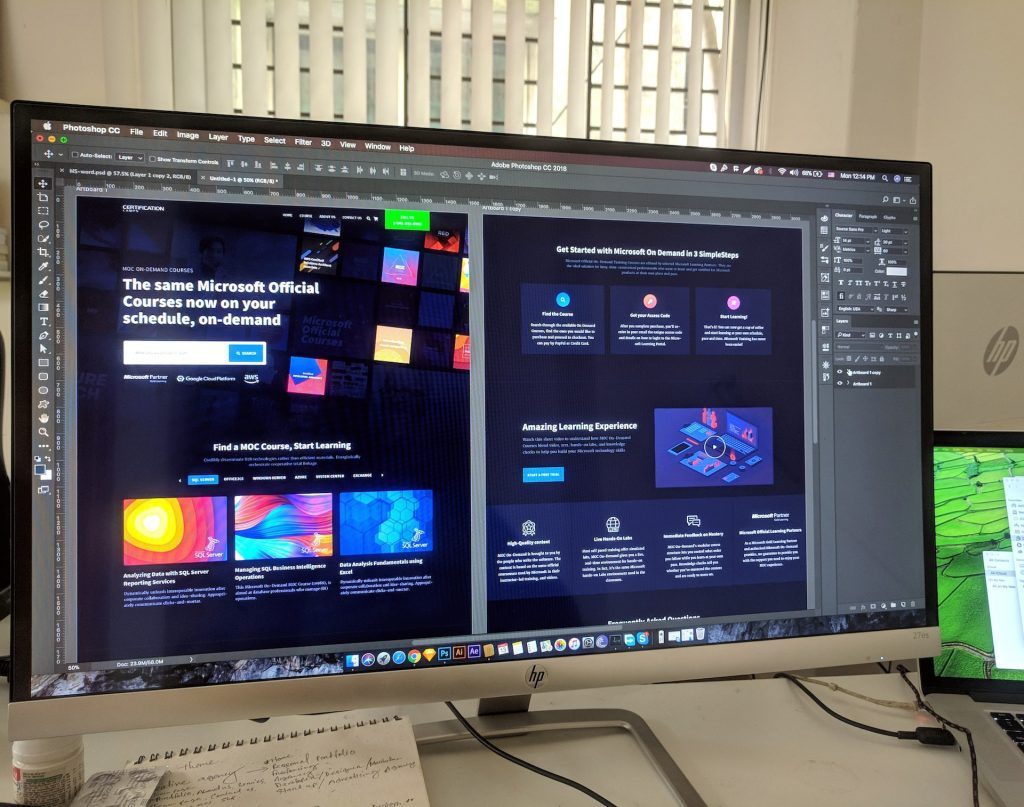The decision to start a blog is an exciting one, and you’re in good company. There are already millions of people around the world who have started their own blogs, with many making a life-changing income from them. Despite this, getting started in the blogging world can seem intimidating for those who are new to it. This post will walk you through everything you need to know to create your blog, from choosing a platform to picking a topic to write about. By the end of this post, you’ll be ready to start your blog and share your voice with the world.
First Things First: Get Good Hosting
Websites are made accessible to people all over the world through hosting services. Web hosts provide servers connected to the internet where users can store websites and their associated content. However, novice bloggers usually overlook this step due to their emphasis on costs, which can have long-term consequences. A great web hosting service will have numerous advantages over poor to average ones, and while they might cost slightly more, the benefits you receive far outweigh any additional costs. Nonetheless, there are several things you need to check when purchasing a quality host for your fledgling site:
- Cost: As already discussed, you should purchase hosting that falls within your budget. While it may be tempting to choose the cheapest available, you should try to increase your budget a little to get one that meets the rest of these requirements.
- Loading speed: Fast-loading websites aren’t just nice from a user-experience point of view but are also considered ranking factors. In many cases, a slow website results from a slow host, and a slow site can result in lost customers or users.
- Uptime: A host’s uptime is the percentage of time it is in operation. While not many hosting companies will boast 100% uptime, you should choose one that is as near as possible.
- Monthly traffic: Some hosting services have a limit on monthly traffic. A server will charge extra fees if additional users access your site after a particular amount of time or stop displaying your website. Initially, this isn’t an issue, but once your blog begins to gain traction, it can quickly become a bottleneck.
- Data security: You should select a host that provides regular site backups. The advantage of this is that if something goes wrong, you can refer to a previous backup and get back online immediately.
- Customer support: Things can go wrong, and they almost always do! Therefore, choosing a host that offers good customer service is essential. In practice, this means email at a bare minimum, but live chat if possible.
- Scalability: Most people don’t need the most expensive and best features when they are starting. Nevertheless, if you are serious about your blog, you will eventually reach a point where you need to upgrade things like storage, monthly users, private servers, etc. Therefore, in order to avoid having to migrate to another host in the future, your chosen host should provide an affordable platform for scaling up.
Choose A Brandable Domain Name
In order to launch a successful website, choosing a brandable domain name is imperative. Your domain name is not only your website’s online address but also what makes it unique. Visitors will see it when they visit your website. However, your domain name should be easy to remember, and it needs to be something you can use in marketing materials without sounding too generic. An excellent way to come up with a great domain name is to brainstorm words that identify what you do or who you are. Moreover, you should avoid trademarked names that could land you in legal trouble in the future.

Select A Platform To Build Your Website On
In the past, the choice was between the leading content management systems (CMSs) of:
- WordPress
- Joomla
- Drupal
However, these days, you have a plethora of options, including self-hosted CMSs. The most popular are Squarespace and Wix, which can make life slightly easier. However, they can be highly costly to scale up and require monthly subscriptions. The most popular option these days is WordPress which is easy to learn, straightforward to set up, and provides you with a level of flexibility unmatched by other CMSs. However, what you choose will always depend on what you want from your website. Nevertheless, a self-hosted WordPress installation is typically more than enough for a blog (or even a basic e-commerce site).
Spend Some Time Getting The Essentials Correct
The layout of a website is one of the most important aspects to consider when designing a website. The structure is a web page’s design, which includes the placement and appearance of text, images, videos, and other media. The design is the foundation of a website’s visual design, and it needs to be visually pleasing, easy to navigate and help people find what they are looking for.
Create An Editorial Calendar
A website without content is useless, so you should set up an editorial calendar to avoid leaving your website devoid of content. Creating an editorial calendar for a new website is crucial because it helps you plan your content in advance and ensure you are not missing anything important.
Set Up Relevant Social Media Profiles
There used to be a recommendation that you set up a profile on every social media platform available. However, nowadays, the general consciousness is to choose social media profiles that complement your niche and what you want to do with it. For example, if you plan on creating videos, you might consider YouTube and TikTok. Conversely, if your blog is aimed at professionals, a Linkedin account might be worthwhile.
Get Your Blog In Front Of As Many People As Possible
Marketing a new website is integral to its success. Marketing a new website is more than just creating a social media account, posting updates, and promoting it in the appropriate channels. Three stages should be followed when marketing a new website:
- Pre-launch
- Launch
- Post-launch
The pre-launch stage involves building awareness and buzz for your site before it launches. The launch stage entails promoting your site through various channels and developing an effective strategy to get people to visit it. Post-launch marketing involves maintaining the momentum of your initial launch by promoting your site on social media platforms, blogs, etc.
Blogging is far more complex than it used to be, but it can also be much more profitable. With the advice in their post, you will be well on your way to creating and maintaining a successful website that will bring you income for years to come.









